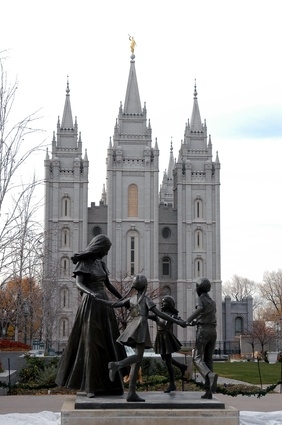News
Child Advocacy Laws in Oklahoma
- 3/18/2010
- eHow.com
- Link: http://www.ehow.com
by Cheryl Frazier, eHow Contributing Writer

Since 1983, the Oklahoma Institute of Child Advocacy has been at the forefront of the legislative changes in Oklahoma that have improved the lives and well being of Oklahoma's youngest citizens. Anne Roberts served as executive director of the OIAC for over 20 years. She once said, "Child advocacy stems from the concept that children are more than property, more than simply instruments of economic gain for their parents." Over the past several decades, child advocacy laws have been passed in the areas of juvenile justice, child abuse prevention and educational reform.
Juvenile Justice
House Bill (HB) 2640 was enacted as the Juvenile Reform Act. The law was passed in response to the Terry D. versus the State of Oklahoma lawsuit. In 1978, the Legal Aid of Western Oklahoma, the National Center for Youth Law and the National Prison Project of the American Civil Liberties Union filed the lawsuit on behalf of residents of the L.E. Rader institution. The suit alleged inappropriate use of restraints, the mixing of non-offending youth with juvenile offenders, and excessive isolation.
HB 2640 created the Office of Juvenile Affairs, and the office was commission with the task of providing safe and appropriate service to Oklahoma's youth that required alternative custodial care. The legislation also included a provision to address first offender and high-risk juvenile offenders.
Child Abuse Prevention
The Oklahoma Department of Human Services (OKDHS) has long held the responsibility of looking after the welfare of Oklahoma's children that have been abused or neglected. Unfortunately, that responsibility has not always included a level of authority that has been sufficient enough to prevent tragedy. House bills 2053 and 2840 were enacted to strengthen the ability to protect high-risk children.
HB 2053 is also known as the Ryan Luke Bill. HB 2053 was passed in response to the events that took place in the short and tragic life of little Ryan Luke (Dec. 28, 1992 to Mar. 5, 1995). He was rescued from the abuse of his primary caretakers only to fall through cracks in the system that led to additional abuse and ultimately to his death. HB 2053 requires monitoring for children that have been returned to the care of their parents. It also mandates background checks for any extended family or non-family custodian. The bill also provided a provision to assign an advocate to children that have suffered abuse.
The murder of two-year-old Kelsey Smith-Briggs illuminated the need to ensure that the OKDHS possessed an appropriate level of authority in its role to protect abused and neglected children. Kelsey was returned to her abusive environment against the recommendations of OKDHS. HB 2849 grants access to utilize the investigative services of the Oklahoma State Bureau of Investigation. The bill also allows greater input from special advocates that are assigned to serve the interest of the high-risk child.
Educational Reform
Prior to 1990, Oklahoma's educational system lacked statewide accreditation and curriculum guidelines, the starting salary for a teacher in Oklahoma was as low as $15,000 per year, and state law permitted children to start school as late as eight years old.
HB 1017 was enacted in 1990 as the Education Reform Act of 1990. It made sweeping changes that drastically changed education for the children of Oklahoma. This legislation mandated a reduction in class sizes, increased the starting salary for teacher and created statewide testing and student achievement accountability. The act also mandated attending kindergarten and designated five years old as the starting age for education.
- Family Law
- Pro Bono/Legal Services